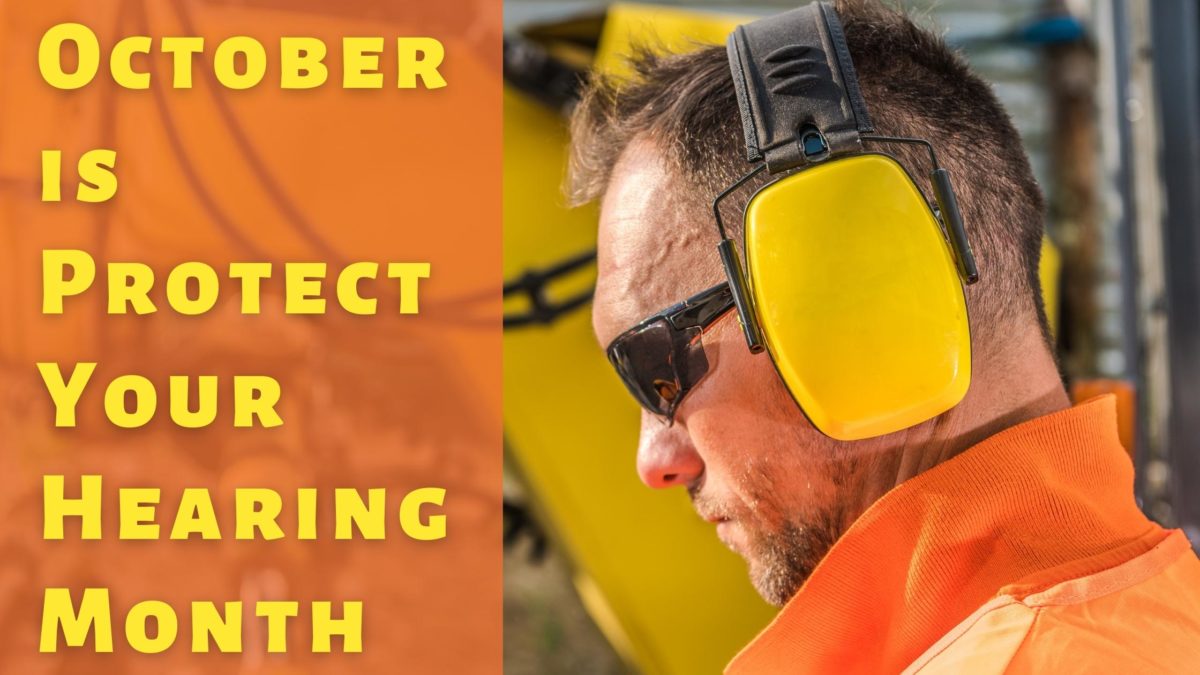- Are Cochlear Implants Worth It? - June 6, 2025
- Tips for Using Hearing Aids in Different Environments - May 27, 2025
- Rechargeable Hearing Aids vs. Battery-operated Hearing Aids - May 16, 2025
This October is Protect Your Hearing Month! Dedicated to raising awareness about hearing loss, this month is a great time to learn and practice ways you can protect your hearing health. More and more people are at greater risk of developing hearing loss due to the increased use of personal audio devices. Portable electronic devices and earbud use can expose people to hazardous levels of noise that can damage hearing. The World Health Organization estimates that over 1 billion people worldwide are vulnerable to hearing loss due to loud noise from devices and in social spaces. This month is a great reminder to learn and practice ways you can protect your hearing health!
Impact of Loud Noise on Hearing
One of the most common causes of hearing loss is exposure to loud noise. One-time or consistent absorption of loud noise can cause irreparable damage to the inner ear. Loud noise can cause the hair cells in the cochlea to lose sensitivity and over time, can lead to these cells dying. There are thousands of hair cells in each ear that help convert incoming soundwaves into electrical impulses. These signals are then carried to the brain (through the auditory nerve) where they are further processed and assigned meaning to. This is what enables us to understand the sound and speech we hear. Hair cells, unlike other types of cells (like skin cells), do not regenerate which means that when they experience damage, this results in permanent hearing loss.
How Loud is too Loud
We are exposed to varying degrees of noise daily. From waking up to the sound of an alarm clock to commuting to work, listening to music or podcasts, and having conversations throughout the day. Though most noise we are exposed to is not particularly dangerous, there is a range of sounds we navigate regularly that can be. Sound is measured in units known as decibels (dB) and noise above 85dB can be dangerous for one’s hearing. This is the equivalent of household appliances like a vacuum cleaner or busy city traffic:
- 60-70dB: normal conversation, office noise
- 80-90dB: heavy traffic, air conditioner, noisy restaurant
- 100-110dB: subway, electronic devices
People can navigate noise at 85dB for 8 hours per day without experiencing any risk to hearing health. But for noise above 85dB, the exposure time should be monitored and reduced. Experts suggest that for every 3-decibel increase (after 85dB), the exposure time should be cut in half:
- 85dB: 8 hours
- 88dB: 4 hours
- 91dB: 2 hours
Reducing your absorption of loud noise is an important (and effective) way to reduce your risk of developing hearing loss.
Tips to Protect Hearing Health
There are countless safety measures you can practice to protect your hearing health. This includes the following:
- Wear protective gear: wearing protective wear for your ears provides a helpful barrier that reduces the amount of noise you absorb. Protective wear can include headphones, earmuffs, earbuds, etc. This is especially useful when moving through louder environments like while commuting, at concerts, in sports arenas, etc.
- Reduce exposure: in addition to wearing protective gear, there are other ways you can reduce your exposure to loud noise. This includes avoiding restaurants and bars during peak hours, taking alternate routes to avoid traffic or construction sites, rolling up your windows while driving, etc.
- Lower volume: it is important to maintain lower volume settings while using personal audio devices. These devices can reach hazardous levels that can damage hearing. A great way to help do this is by investing in noise cancellation headphones which are designed to minimize background noise, preventing you from having to increase the volume when you move through louder environments.
- Take listening breaks: our ears and brain are constantly absorbing and processing sound so taking listening breaks is a great way to help the auditory system rest and recover. Power off unnecessary sources of sound and inhabit a quieter space a few times a day.
Another critical tip to integrate is scheduling an appointment to have your hearing tested. Visit us to assess and establish your hearing needs. Our expert audiologists provide one-on-one care that is invested in treating your individual needs. Offering comprehensive services, we focus on transforming your hearing health and quality of life!

